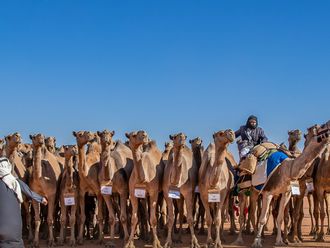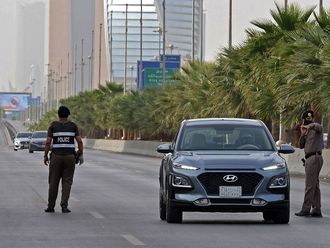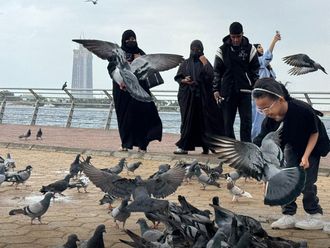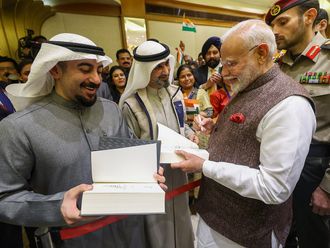Cairo: Saudi Arabians are forgoing one of their favourite foods as a Twitter campaign against high poultry prices gains momentum.
The ‘Let it Rot’ campaign urges people to refrain from eating chicken to punish traders who they say have raised prices by about 40 per cent in the past two weeks.
Saudi Arabia is a leading supplier of chicken, a food staple in the country, to neighbouring countries and an export ban imposed this week in an effort to defuse the anger is likely to trigger regional shortages.
In a country where political parties and unions are banned, ordinary Saudis regularly take to social media to vent their anger, organise campaigns and question official decisions. Twitter has become a virtual ‘Saudi street’, which the government sometimes aims to appease.
Blaming rising chicken prices on a 30 to 40 per cent increase in the international price of animal feed — a claim that prompted a tweet accusing the government of collaborating with greedy traders — the government has also added chicken to a list of commodities that must be available at a reasonable price.
Nonetheless, online campaigners have posted pictures showing piles of what they say are unsold chickens in supermarkets as evidence that the initiative is hitting sales. Others posted cartoons depicting chickens reading newspapers because no one was buying them.
“If you stop eating chicken, it will help bring down the corrupt traders, not just the prices,” one person tweeted.
Saudi officials say the kingdom is responsive to the needs of its people at all times unlike the regimes that fell in the Arab Spring. In July last year, the government forced Almarai, the Saudi dairy group, to reverse a decision to increase dairy prices after a boycott campaign on Twitter and YouTube gained thousands of supporters.
Essam Al Zamil, a social media expert who organised the Almarai campaign, said Twitter had almost replaced the traditional majlis, or councils, where Saudis exchange views on their affairs behind closed doors. Those councils were now discussing what was being debated on Twitter rather than the other way round, he said.
Saudi Twitter users often grab the opportunity provided by a crisis to lament the state of affairs in their country. The latest comments have evolved to reflect a general public outcry about the price of chicken.
“This is the natural outcome of corruption and lack of accountability,” one user tweeted.
Saudi King Abdullah Bin Abdul Aziz last year announced a $130-billion (Dh477.37 billion) package of social spending, housing and unemployment benefits as popular uprisings swept the region last year. But although inflation in August fell to 3.8 per cent, the lowest since October 2009, middle class Saudis continue to complain about higher food and housing costs.
While the government is keeping an eye on Twitter to gauge the level of public discontent over one of its favourite food staples, its response to other issues has not been as decisive. A few months ago, activists began a campaign calling for owners of vacant land to be taxed to force them to develop it, to little avail. And a Twitter campaign to allow women to drive has borne no fruit.
— Financial Times












